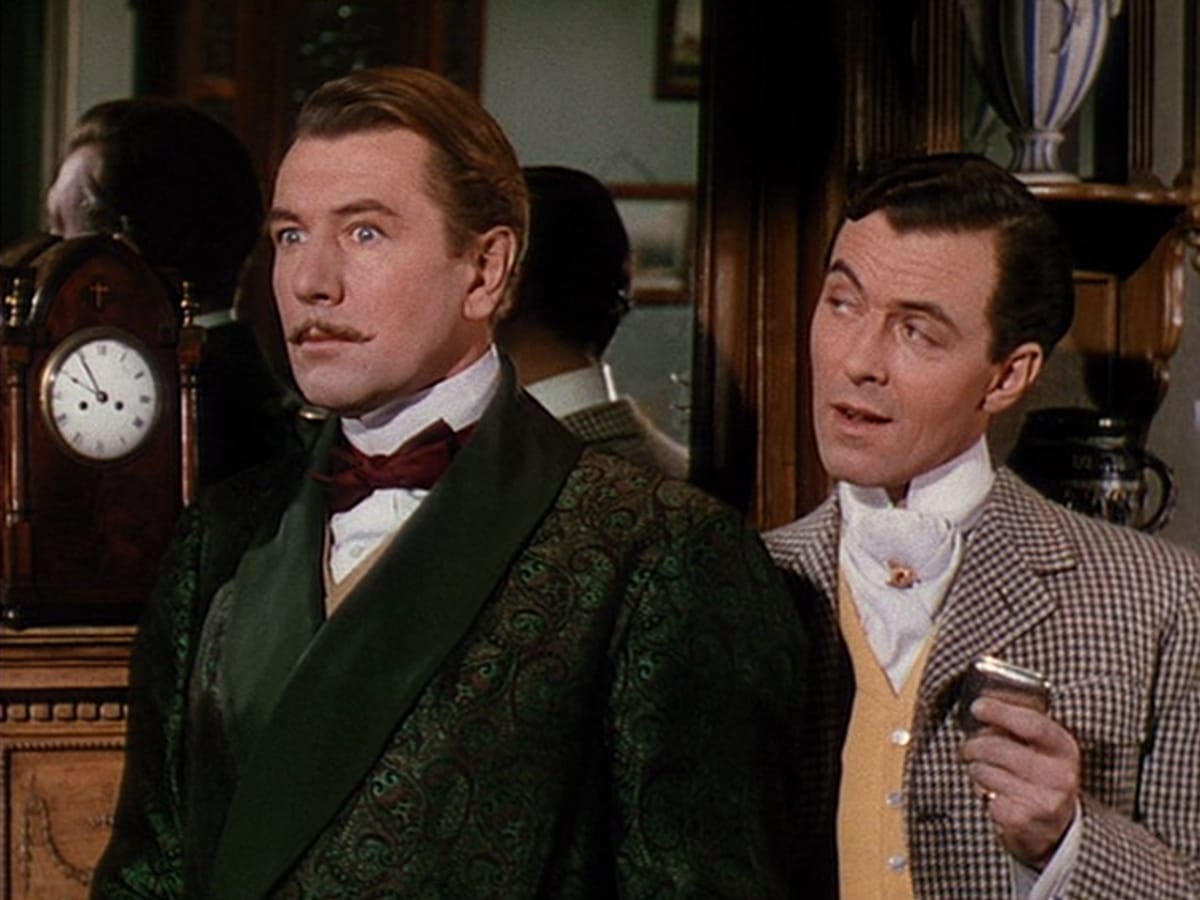An Age of Ideals
The Importance of Being Earnest (1952) is not only the definitive Oscar Wilde adaptation, it’s the definitive comedy of manners. Often acknowledged to have the best cast ever assembled for the play — either on celluloid or on stage — this is one of the best film comedies of the 1950s.
Michael Redgrave (as Jack Worthing), Joan Greenwood (as Gwendolen Fairfax), Michael Denison (as Algernon Moncrieff), and Dorothy Tutin (as Cecily Cardew) are perfectly matched as the couples who have to overcome real and imagined obstacles to attain true love. Yet it’s the performances by Edith Evans as Lady Augusta Bracknell and Margaret Rutherford as Miss Letitia Prism that steal the show. Pity the poor actress who has to play Lady Bracknell to an audience that remembers Evans’ outraged voice from this unforgettable movie.
Of course, here the play’s the thing. Wilde’s comedic farce is revisited time and time again because inspired writing never grows old. Here is some of the dialogue from the movie:
Jack: I have lost both my parents.
Lady Bracknell: To lose one parent, Mr. Worthing, may be regarded as a misfortune; to lose both looks like carelessness.
Gwendolen: Even before I met you I was far from indifferent to you. [Jack looks at her in amazement.] We live, as I hope you know, Mr. Worthing, in an age of ideals. The fact is constantly mentioned in the more expensive monthly magazines, and has reached the provincial pulpits, I am told; and my ideal has always been to love someone of the name of Ernest. There is something in that name that inspires absolute confidence. The moment Algernon first mentioned to me that he had a friend called Ernest, I knew I was destined to love you.
Algernon: I really don’t see anything romantic in proposing. It’s very romantic to be in love but there’s nothing romantic about a definite proposal. Why, one might be accepted. One usually is I believe. Then the whole excitement is over. The very essence of romance is uncertainty.
Lady Bracknell: To be born, or at any rate bred, in a hand-bag, whether it had handles or not, seems to me to display a contempt for the ordinary decencies of family life that reminds one of the worst excesses of the French Revolution. And I presume you know what that unfortunate movement led to? As for the particular locality in which the hand-bag was found, a cloak-room at a railway station might serve to conceal a social indiscretion — has probably, indeed, been used for that purpose before now — but it could hardly be regarded as an assured basis for a recognized position in good society.
The film’s director, Anthony Asquith, was fully in his element when poking fun at British upper-class manners. His father was Herbert Asquith, first Earl of Oxford and Prime Minister of England from 1908 to 1915. Ironically, it was Herbert Asquith, who as British Home Secretary had ordered Wilde’s arrest in 1895 for immoral behavior. Perhaps Anthony Asquith saw his direction of this sumptuous Technicolor production as a form of restitution.
Whatever the motivation, Asquith was an excellent choice. His other films include A Cottage on Dartmoor (1929), Pygmalion (1938), The Way to the Stars (1945), The Winslow Boy (1948), and The Browning Version (1951).
The Importance of Being Earnest
(1952; directed by Anthony Asquith)
The Criterion Collection (DVD)
Sunday, May 4 at 11:45 a.m. eastern on Turner Classic Movies
Reviews